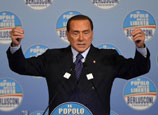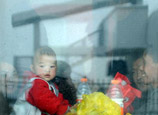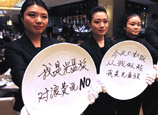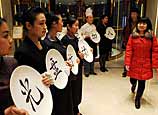
Discussion of China's policy agenda under new leadership is heating up, with leading government officials and international economists at the World Economic Forum saying that China should continue to push structural reforms to achieve sustainable development.
Zhang Xiaoqiang, deputy director of the National Development and Reform Commission of China, said the new leaders' agenda will focus more on shifting the country's growth model toward efficiency and quality.
"The new leadership has emphasized clearly that China's development will move toward efficiency and quality through structural reforms," he said at a panel discussion of the Davos forum, which concluded on Saturday.
"China will more rely on enlarging domestic demand and science and technological innovation to ensure sustainable development," he said.
But the domestic-oriented policy agenda does not mean that China will close its market, he said, noting that China will continue to open up to international enterprises.
Gorden Brown, former British prime minister, said China's new leadership should recognize the convergence of interest of its international partners.
"While reform is needed to improve education, urban systems, the labor market and environmental conditions, recognition of interdependence is very important, which requires far more international cooperation than ever before," he said.
Fan Gang, director of the National Economics Research Institute of China Reform Foundation, said the new leadership should "seriously consider" setting up an overarching institution to design China's reform agenda to redefine the boundaries of the government.
"Only through decisive reform and clearly defining the role of government could China's tough difficulties at home be eased," Fan said.
Fan's recipe came as Davos participants have shown great interest in the new leadership, which was elected in November at the 18th National Congress of the Communist Party of China. Delegates said they have learned about the personalities of the new leaders, including Xi Jinping and Li Keqiang, through extensive media reports, which are encouraging.
Fan said the new leadership has so far shown determination to fight corruption and advocate reform.
"But the new policy portfolio needs time to take shape and I think in March, when the new government is formed, more economic and social policies will be churned out."
Fan said it is crucial to set up an overarching institution to coordinate a reform agenda, which now is mainly implemented through the National Development and Reform Commission. Nearly 10 years ago, China had a ministerial-level agency, which was under direct supervision of the central government, to design and implement the reform roadmap and agenda.
"The reform institution (a department under NDRC) has faced mounting difficulties to coordinate the interests of the sectors (ministries) mainly because of its lower authority."
Fan said the Chinese government should reform itself first by reducing administrative approvals, pricing and economic activities. "It should find its proper role in maintaining smooth economic growth, offering public goods and social welfare in a market economy," said Fan.
Anil Gupta, professor of strategy and entrepreneurship at the University of Maryland in the US, said China's new leadership has shown a lot of confidence, which is a very good starting point.
"For example, Xi Jinping is very confident, very decisive and very direct," Gupta said. "Because of his clear communication, it is easier to interpret what he said and that he means what he said."
Meanwhile, Gupta said the world is also eager to know how the leadership will try to solve regional disputes and maintain regional security - and how it will tackle social problems in a society connected by social media.
Orit Gadiesh, chairman of Bain & Company, a leading international strategy consulting group, said she expects the new leadership to maintain "open-minded" attitudes.
"We see the huge potential and confidence over China is not only from surprising changes in infrastructure but also from the attitude changes over the last decade," said Gadiesh, who is chair of the international advisory body of Shanghai municipality.
Gadiesh said she was among 14 multinational CEOs to offer suggestions for Shanghai at an annual meeting. "We presented our papers and also had a constructive discussion with the mayor," she said.
















 Grandparents who leave homes to live in the cities and take care of their children's children are a growing demographic.
Grandparents who leave homes to live in the cities and take care of their children's children are a growing demographic.


![]()
